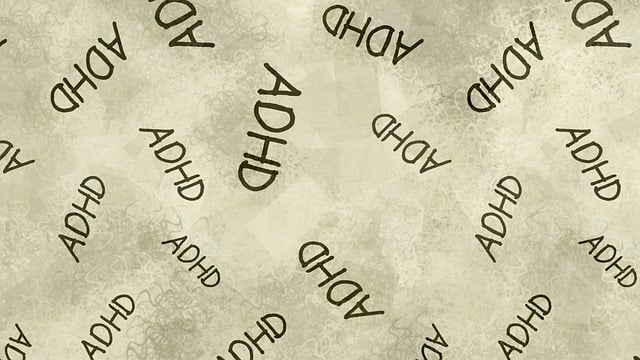Mental wellness journaling is a powerful tool for children with cancer, offering a creative, private space to express emotions, process challenges, and build resilience. Cultural sensitivity ensures personalized content tailored to each child's background. Through dedicated journaling areas and prompts suitable for their age and emotional needs, kids can develop coping strategies, gain self-acceptance, and strengthen their support network – all vital elements in navigating cancer and fostering meaningful healing. This approach complements therapy and community outreach programs focused on trauma support and stress management for children facing cancer issues.
Mental wellness journaling is an empowering tool for children facing cancer issues, offering a therapeutic outlet to express emotions and navigate their journey. This article explores the benefits of expressive writing as a complementary therapy for young patients with chronic illnesses. We guide parents on creating a safe space—a dedicated journaling corner—and provide effective prompts to help kids open up. By incorporating these practices, families can foster emotional healing and resilience in the face of cancer.
- Understanding Mental Wellness Journaling for Children with Cancer Issues
- Benefits of Expressive Writing for Young Patients Facing Chronic Illness
- Creating a Safe Space: Designing Your Child's Journaling Corner
- Effective Journaling Prompts and Techniques to Support Emotional Healing
Understanding Mental Wellness Journaling for Children with Cancer Issues

Mental wellness journaling can be a powerful tool for children facing cancer issues, offering a creative outlet to express their emotions and experiences. This form of therapy allows kids to process their feelings, often complex and overwhelming, in a safe and private manner. By documenting their thoughts, they can gain a sense of control and begin to understand and manage their emotional responses to the challenges they face.
Journaling encourages children with cancer to engage in self-reflection and develop essential coping strategies. It promotes emotional regulation by helping them identify and label their feelings, fostering resilience building over time. Moreover, cultural sensitivity in mental healthcare practice can be integrated into this process, ensuring that the content and approach are tailored to each child’s unique background and beliefs. This personalized aspect enhances the therapeutic effect, allowing for a more meaningful and effective journey towards healing and recovery.
Benefits of Expressive Writing for Young Patients Facing Chronic Illness

Expressive writing has emerged as a powerful tool for young patients facing chronic illnesses, offering numerous benefits that extend beyond mere words on paper. By encouraging children to articulate their thoughts, feelings, and experiences, this therapeutic practice fosters inner strength development and promotes resilience building. Through regular journaling, kids battling cancer or other long-term conditions can learn to navigate their emotions, gain a sense of control, and develop coping mechanisms that will serve them well throughout their lives.
This form of therapy also plays a vital role in mental illness stigma reduction efforts. By providing a safe and non-judgmental space for self-expression, expressive writing allows young patients to process their journey and share their stories without fear of being labeled or misunderstood. This can lead to increased self-acceptance, improved communication with loved ones, and a stronger support network—all crucial factors in navigating the challenges associated with chronic illness.
Creating a Safe Space: Designing Your Child's Journaling Corner

Creating a dedicated journaling space can be therapeutic for children navigating cancer issues. This safe haven should be designed with their comfort and emotional well-being in mind. Consider their personal preferences; perhaps they love nature, which could inspire a journal theme around exploring forests or gardening. Using their favorite colors and objects can make the area feel comforting and inviting. A child’s journaling corner should also foster creativity; provide art supplies like colored pencils, markers, and paints to encourage self-expression through drawings or sketches that accompany their thoughts.
The environment should promote open communication, especially when therapy for children with cancer issues involves compassion cultivation practices. Make sure the space is quiet and free from distractions. A cozy chair or cushion, soft lighting, and a comfortable table can create a sense of calmness, making it easier for them to reflect on their feelings and engage in positive thinking. Incorporate communication strategies by adding a prompt board with inspiring quotes or questions to guide journaling entries, fostering meaningful conversations between patients, caregivers, and therapists.
Effective Journaling Prompts and Techniques to Support Emotional Healing

Effective journaling prompts can be a powerful tool to support emotional healing for children facing cancer issues. Simple yet profound questions like “How am I feeling today?” or “What brought me joy this week?” encourage kids to process their emotions and develop self-awareness. These prompts, tailored to their age and understanding, allow them to express fears, anxieties, or even gratitude, fostering a sense of control over their mental wellness journey.
Incorporating techniques like free writing, mood tracking, or drawing can further enhance the therapeutic effect. Free writing involves jotting down thoughts without censorship, helping children explore and release emotions. Mood tracking charts enable them to visually represent their feelings over time, identifying patterns and triggers. Drawing, meanwhile, provides a non-verbal outlet for expressing complex emotions, making it particularly beneficial for those who find words challenging. Such practices, when integrated into a structured journaling routine, can serve as valuable supplements to therapy for children with cancer issues, even supporting the implementation of community outreach program initiatives focused on trauma support services and stress management.
Mental wellness journaling offers a powerful therapy for children facing cancer issues, providing them with an outlet to express emotions and foster emotional healing. By creating a safe space and utilizing effective prompts, caregivers can support young patients in navigating their chronic illness journey. This simple yet impactful practice has the potential to enhance their mental wellness, offering a sense of control and empowerment during challenging times.














